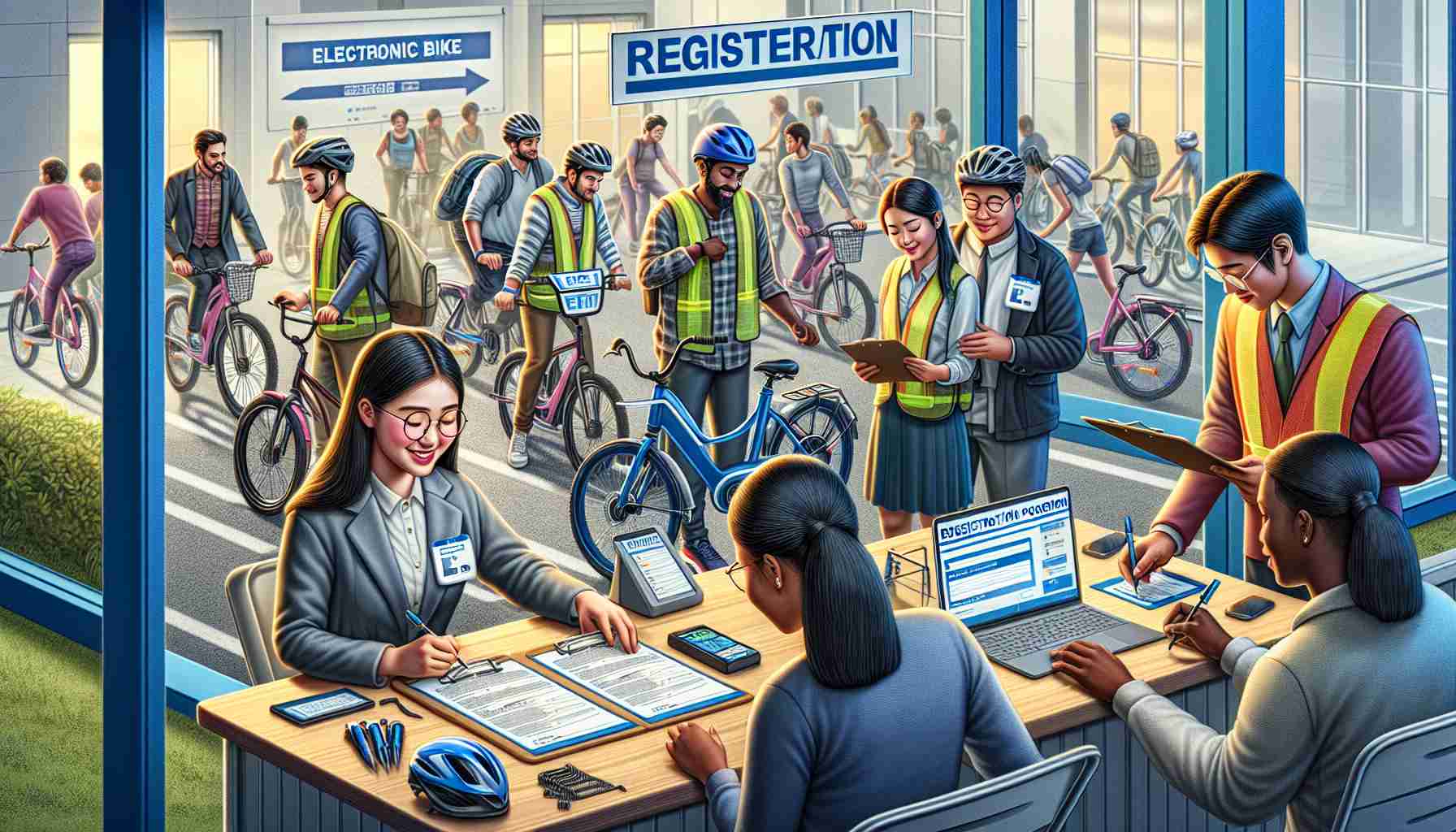A new e-bike registration program is set to launch in the fall for students of the Tamalpais Union High School District in California. In an effort to enhance safety and address concerns surrounding e-bikes, the program will require students to register their bikes if they want to park on campuses. Additionally, the use of e-bikes that can travel over 20 miles per hour will be prohibited.
Chief Michael Norton of the Central Marin Police Authority expressed concerns about the misclassification of some bikes being sold as e-bikes when they are actually motorized bicycles or mopeds. These vehicles are subject to different regulations and require registration with the state Department of Motor Vehicles. Norton emphasized the importance of ensuring that students are aware of traffic laws and wear helmets, as the majority of injury-level accidents on e-bikes in the area involve young riders aged 10 to 16.
To enforce the registration process, parents will need to sign a letter certifying that their child’s e-bike will not exceed 20 mph. Law enforcement will collaborate with the school district to impound unregistered e-bikes and e-motorcycles. It is crucial to establish clarity on which devices are legal in order to prevent confusion among consumers.
E-bike regulations, both at the local and state level, are currently undergoing revisions, making it necessary for education officials and law enforcement to address the issue. By implementing a registration program, the Tamalpais Union High School District aims to ensure the safety of its students and provide families with accurate information regarding e-bike regulations.
By taking these steps, the district hopes to foster a safer environment for students who choose to ride e-bikes to school. As e-bike usage continues to grow, it is essential to strike a balance between encouraging sustainable transportation options and upholding safety standards. The registration program is just the beginning of a broader conversation on how to best protect young riders and promote responsible e-bike use.
The e-bike industry has been experiencing significant growth in recent years, with more and more people opting for this mode of transportation. According to a report by Market Research Future, the global e-bike market is projected to reach a market value of USD 38 billion by 2025, growing at a CAGR of 8.5% during the forecast period. This growth can be attributed to factors such as increasing awareness about environmental sustainability, rising fuel prices, and government initiatives to promote electric vehicles.
However, along with the rise in e-bike popularity, there have been concerns about safety and regulations surrounding these vehicles. The misclassification of e-bikes as motorized bicycles or mopeds has become a common issue. This misclassification not only leads to confusion among consumers but also creates challenges for law enforcement agencies in enforcing appropriate regulations.
To tackle these challenges, various regulatory bodies at the local and state levels are revising e-bike regulations to ensure clarity and consistency. For instance, California recently passed legislation that defines e-bikes based on their top speed and motor power, categorizing them into three classes. These regulations aim to establish clear guidelines for the classification and usage of e-bikes.
The Tamalpais Union High School District in California’s initiative to launch an e-bike registration program for students is a proactive step to address these concerns and promote safety. By requiring students to register their e-bikes and prohibiting the use of high-speed models, the program aims to ensure that young riders are aware of traffic laws and helmets are prioritized for their safety.
Collaboration between law enforcement agencies and educational institutions is crucial in enforcing the registration process and impounding unregistered e-bikes. This partnership helps in maintaining a safe environment and preventing any confusion among students and their families about which devices are legal and permitted for use.
While the Tamalpais Union High School District’s initiative is focused on their specific jurisdiction, it highlights the need for similar programs and regulations across other regions as well. As the popularity of e-bikes continues to grow, it becomes imperative to strike a balance between promoting sustainable transportation options and upholding safety standards for riders of all ages.
For more information about the e-bike industry, market forecasts, and related topics, you can visit reputable sources such as Market Research Future, which provides detailed reports on the global e-bike market and its growth prospects. Additionally, you can refer to industry associations like the Electric Bike Report for insights, news, and updates on the e-bike market.
